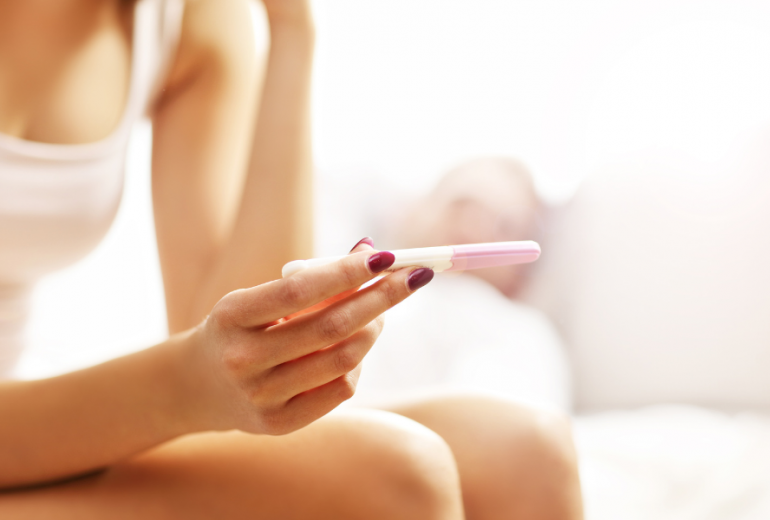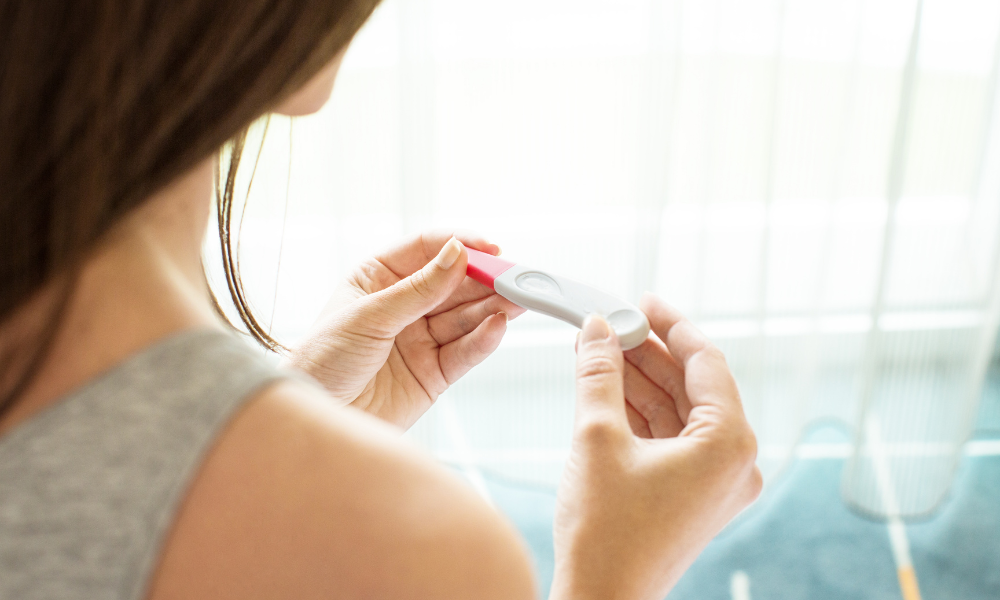
Trying to Get Pregnant: How to Understand Your Fertile Window and Boost Your Chances Naturally
Trying to get pregnant is one of the most exciting yet emotionally challenging times in a woman’s life. Whether you have just started planning your pregnancy or you’ve been tracking your cycle for months without success, it’s completely normal to wonder how long it usually takes and if you are doing everything right. Many couples expect it to happen instantly, but biology doesn’t always follow our schedules.
One of the most common questions is “How many days after your period can you get pregnant?” The truth is that fertilisation is only possible during the fertile window, which usually lasts five to six days per month.
Ovulation typically occurs around the middle of your cycle, but every woman is different. Instead of guessing, track your cycle with ovulation strips, temperature monitoring or digital fertility tools. The best time to have intercourse is the two days before ovulation and the day of ovulation itself.
Trying to Get Pregnant and Still No Results?
If you feel anxious thinking “Why am I not getting pregnant even though I’m doing everything right”, remember that even under perfect conditions, the chance of conceiving in a single cycle is only about 20 to 25 per cent for women under 35. Age, lifestyle, stress and general health can all influence your chances.
You might also wonder “What are the signs that you can’t conceive” or “at what point you should seek medical advice”. Irregular periods, severe pain during menstruation, sudden weight changes or hormonal symptoms like excessive hair growth may be signs of an underlying hormonal imbalance such as PCOS or endometriosis. If you have been trying for over a year under 35, or more than six months after 35, consider booking a consultation with a fertility clinic.
In Greece, many couples choose IVF Serum Clinic in Athens as their trusted partner for guidance before treatment is even required. A fertility specialist can run simple tests, check your hormone levels and sperm quality and help you avoid unnecessary delays. Sometimes, a little support is all it takes to get your body naturally on track.
How Can I Increase My Chances of Getting Pregnant?
Lifestyle plays a significant role. A balanced Mediterranean diet rich in olive oil, nuts, fish and fresh vegetables can support hormone balance and improve egg and sperm quality. One common question is “What can I drink to get pregnant faster naturally?” Water is essential for cervical mucus production, and herbal teas like nettle or raspberry leaf are often recommended for uterine health. Always consult your doctor before trying supplements or herbal remedies.
Limit caffeine to one coffee per day and avoid alcohol if possible. Prioritise good sleep and light exercise. When stress levels drop, your reproductive system works more efficiently. Your mind and body must feel safe to conceive.
How Soon Will a Pregnancy Test Read Positive?
The infamous two-week wait can feel endless. Most early pregnancy tests detect hormones 10 to 14 days after ovulation. If you are wondering “What are the first signs of pregnancy?”, typical early symptoms include breast tenderness, fatigue, mild cramping or an unusual sense of warmth due to progesterone rise. However, many early pregnancies show no symptoms, so only a test can confirm.
When Natural Conception Takes Time
Trying for pregnancy after months of effort can be draining, especially when you don’t understand what is standing in your way. If you are still trying to get pregnant with no success, don’t feel discouraged. Today, reproductive medicine offers multiple options. Many women who thought they had reached their limit went on to conceive through personalised guidance or mild treatments.
If you ever feel stuck or unsure where to turn next, clinics like IVF Serum in Greece specialise in both natural conception support and assisted reproduction. Whether you need basic cycle monitoring or advanced treatments such as IVF over 40, egg donation, or time-optimised protocols, a gentle, science-based approach can make all the difference.
Your journey to parenthood is unique. Give your body knowledge, patience and the proper support. Your timing may be different from what you expected, but with the proper guidance, your moment can still come.
Don’t wait any longer to start your journey,
we are here to help and support you every step of the way.
BOOK YOUR FREE ONLINE CONSULTATION NOW
Our expert guidance can assist you in taking the first step
towards realizing your dream.
Trying to Get Pregnant: How to Understand Your Fertile Window and Boost Your Chances Naturally

Trying to get pregnant is one of the most exciting yet emotionally challenging times in a woman’s life. Whether you have just started planning your pregnancy or you’ve been tracking your cycle for months without success, it’s completely normal to wonder how long it usually takes and if you are doing everything right. Many couples expect it to happen instantly, but biology doesn’t always follow our schedules.
One of the most common questions is “How many days after your period can you get pregnant?” The truth is that fertilisation is only possible during the fertile window, which usually lasts five to six days per month.
Ovulation typically occurs around the middle of your cycle, but every woman is different. Instead of guessing, track your cycle with ovulation strips, temperature monitoring or digital fertility tools. The best time to have intercourse is the two days before ovulation and the day of ovulation itself.
Trying to Get Pregnant and Still No Results?
If you feel anxious thinking “Why am I not getting pregnant even though I’m doing everything right”, remember that even under perfect conditions, the chance of conceiving in a single cycle is only about 20 to 25 per cent for women under 35. Age, lifestyle, stress and general health can all influence your chances.
You might also wonder “What are the signs that you can’t conceive” or “at what point you should seek medical advice”. Irregular periods, severe pain during menstruation, sudden weight changes or hormonal symptoms like excessive hair growth may be signs of an underlying hormonal imbalance such as PCOS or endometriosis. If you have been trying for over a year under 35, or more than six months after 35, consider booking a consultation with a fertility clinic.
In Greece, many couples choose IVF Serum Clinic in Athens as their trusted partner for guidance before treatment is even required. A fertility specialist can run simple tests, check your hormone levels and sperm quality and help you avoid unnecessary delays. Sometimes, a little support is all it takes to get your body naturally on track.
How Can I Increase My Chances of Getting Pregnant?
Lifestyle plays a significant role. A balanced Mediterranean diet rich in olive oil, nuts, fish and fresh vegetables can support hormone balance and improve egg and sperm quality. One common question is “What can I drink to get pregnant faster naturally?” Water is essential for cervical mucus production, and herbal teas like nettle or raspberry leaf are often recommended for uterine health. Always consult your doctor before trying supplements or herbal remedies.
Limit caffeine to one coffee per day and avoid alcohol if possible. Prioritise good sleep and light exercise. When stress levels drop, your reproductive system works more efficiently. Your mind and body must feel safe to conceive.
How Soon Will a Pregnancy Test Read Positive?
The infamous two-week wait can feel endless. Most early pregnancy tests detect hormones 10 to 14 days after ovulation. If you are wondering “What are the first signs of pregnancy?”, typical early symptoms include breast tenderness, fatigue, mild cramping or an unusual sense of warmth due to progesterone rise. However, many early pregnancies show no symptoms, so only a test can confirm.
When Natural Conception Takes Time
Trying for pregnancy after months of effort can be draining, especially when you don’t understand what is standing in your way. If you are still trying to get pregnant with no success, don’t feel discouraged. Today, reproductive medicine offers multiple options. Many women who thought they had reached their limit went on to conceive through personalised guidance or mild treatments.
If you ever feel stuck or unsure where to turn next, clinics like IVF Serum in Greece specialise in both natural conception support and assisted reproduction. Whether you need basic cycle monitoring or advanced treatments such as IVF over 40, egg donation, or time-optimised protocols, a gentle, science-based approach can make all the difference.
Your journey to parenthood is unique. Give your body knowledge, patience and the proper support. Your timing may be different from what you expected, but with the proper guidance, your moment can still come.






